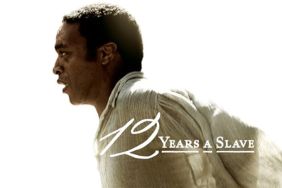
At first I thought to myself, Here it comes, the negative hit pieces against 12 Years a Slave are already underway, as I started reading Michael Cieply’s New York Times piece examining the historical veracity of Solomon Northup‘s 160-year-old story of how he was abducted as a free man and forced into slavery. The film clearly has the ear of Oscar at this point and is dominating awards chatter out of Toronto as we await the release of the next wave of Oscar hopefuls.
After reading the story, it doesn’t have the earmarks of a hit piece, instead an interesting look at a story historians have long pondered and thought the literal truth. As with all films based on supposedly true stories we expect a certain measure of dramatic license and in the case of Lee Daniels’ The Butler earlier this year, perhaps a lot of dramatic license.
Screenwriter John Ridley has said he “stuck to the facts” when writing the screenplay, using Northup’s “[amazon asin=”1492368288″ text=”Twelve Years a Slave: Narrative of Solomon Northup, a Citizen of New-York, Kidnapped in Washington City in 1841, and Rescued in 1853, From a Cotton Plantation Near the Red River, in Louisiana”]” as a guide as well as footnotes and documentation included with historian Sue Eakin‘s 1968 edition of the book.
Speaking with scholar, James Olney, however, Cieply is told, “When the abolitionists invited an ex-slave to tell his story of experience in slavery to an antislavery convention, and when they subsequently sponsored the appearance of that story in print, they had certain clear expectations, well understood by themselves and well understood by the ex-slave, too.”
In his essay, called “I Was Born: Slave Narratives, Their Status as Autobiography and as Literature,” Mr. Olney contended that Solomon Northup’s real voice was usurped by David Wilson, the white “amanuensis” to whom he dictated his tale, and who gave the book a preface in the same florid style that informs the memoir.
“We may think it pretty fine writing and awfully literary, but the fine writer is clearly David Wilson rather than Solomon Northup,” Mr. Olney wrote.
I can see the point here, and I don’t think this harms the story’s worth or even the film. In fact, 12 Years a Slave is a film that doesn’t have may moments that feel disingenuous or trumped up for dramatic license. They feel organic to the story and while we may be able to recognize moments and situations as the merging of instances rather than moments that actually happened, the overall narrative the film follows feels legit.
I like Ridley’s final quote in the piece where he finds the unpredictable nature of the story speaks to its authenticity saying, “Life happens, it’s a lot stranger than the false beats that occur when people try to jam a narrative.”
12 Years a Slave hits theaters on October 18, you can read my full, “A+” review right here.









